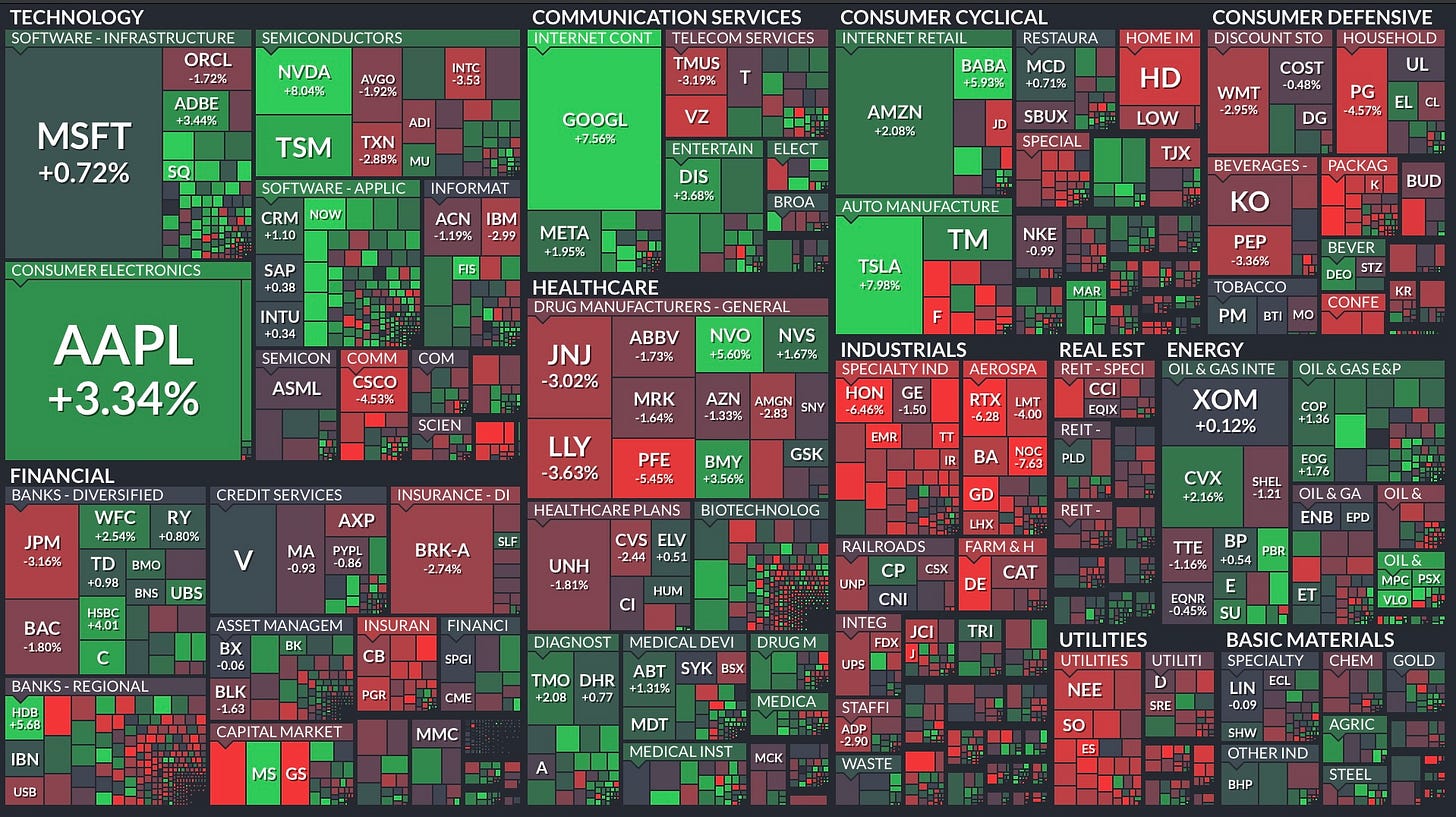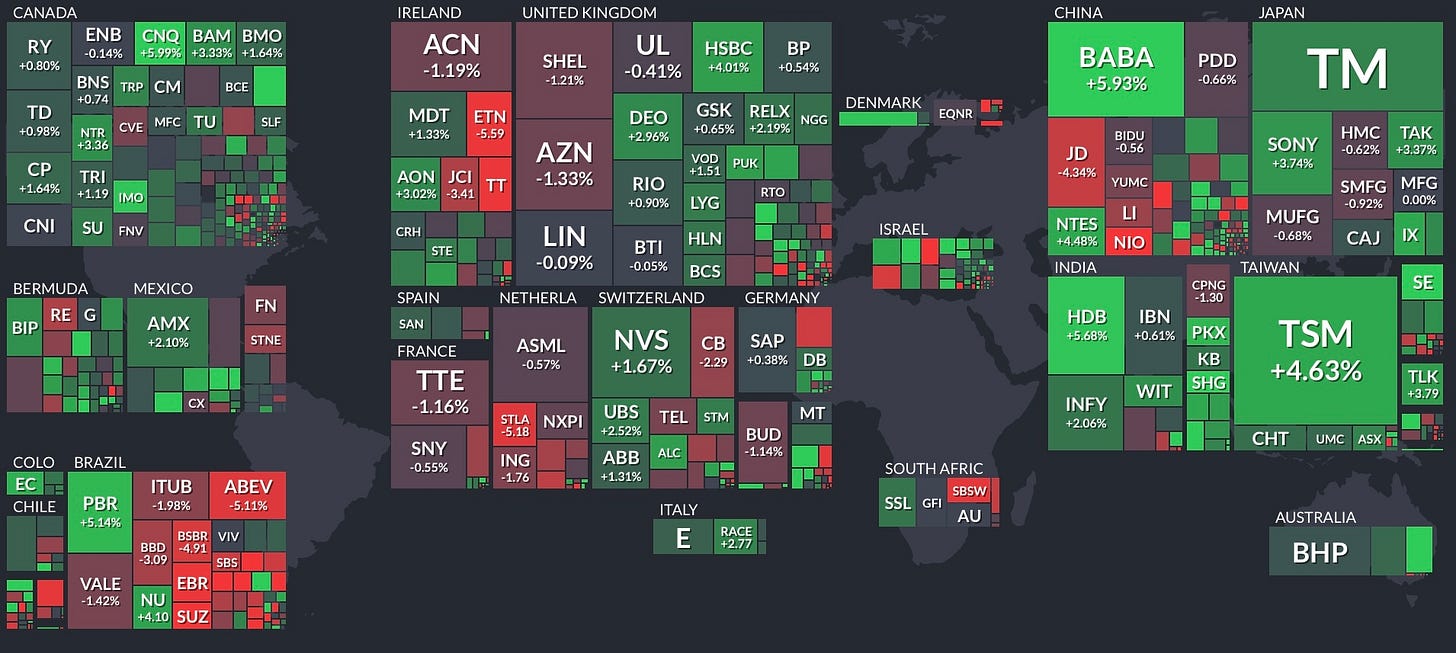📑 Research Notes for 2023-01-23
This week, we look at the U.S. Debt Ceiling again, a third "sea change" in financial markets, risky debt challenges, and a one-sided trade in Chinese stocks.
We conduct extensive investment research and share the most interesting content that we come across every week. Here is a curated list of this week’s top observations.
Do not reply to this email with any service requests, contact us for support if needed.
Will the US Reach a Debt Limit Deal in Time?
Lawmakers and business leaders at Davos share their thoughts about the US trying to reach a deal to raise the debt limit before the government defaults on its obligations later this year.
🔗 Source
Howard Marks Sees Third Sea Change Underway in Markets.
Billionaire Howard Marks, Oaktree Capital Management co-chairman, explains why he thinks financial markets may be in the middle of the third sea change of the last 50 years.
🔗 Source
Wall Street's Leveraged-Debt Machine Breaks Down.
Big banks are stuck with about $40 billion of risky debt on their books blocking the M&A machine that's enriched bankers and private-equity executives over the past decade.
🔗 Source
Long Chinese Stocks Seen Among Most-Crowded Trades.
Investors and fund managers have turned so bullish on China in the past two months, being long China has become one of the most crowded trades.
🔗 Source
Last Week’s Market Performance Heatmap
🔗 Source
Curated by Joseph Lu, CFA®
Joseph is the founder and a managing director of Conscious Capital Advisors, as well as a CFA® Charterholder.
🔗 Connect with us on LinkedIn, Facebook, or Twitter.
Have a question about what we shared? Email us at info@consciouscapital.pro.
Do not reply to this email with any service requests, contact us for support if needed.
The information presented in this newsletter is for educational purposes only and is not a solicitation or recommendation for any specific security, product, service, or investment strategy.
Investments involve risk and unless otherwise stated, are not guaranteed. Be sure to consult with a qualified financial advisor, tax professional, or attorney before implementing any strategy or recommendation you may read here.





